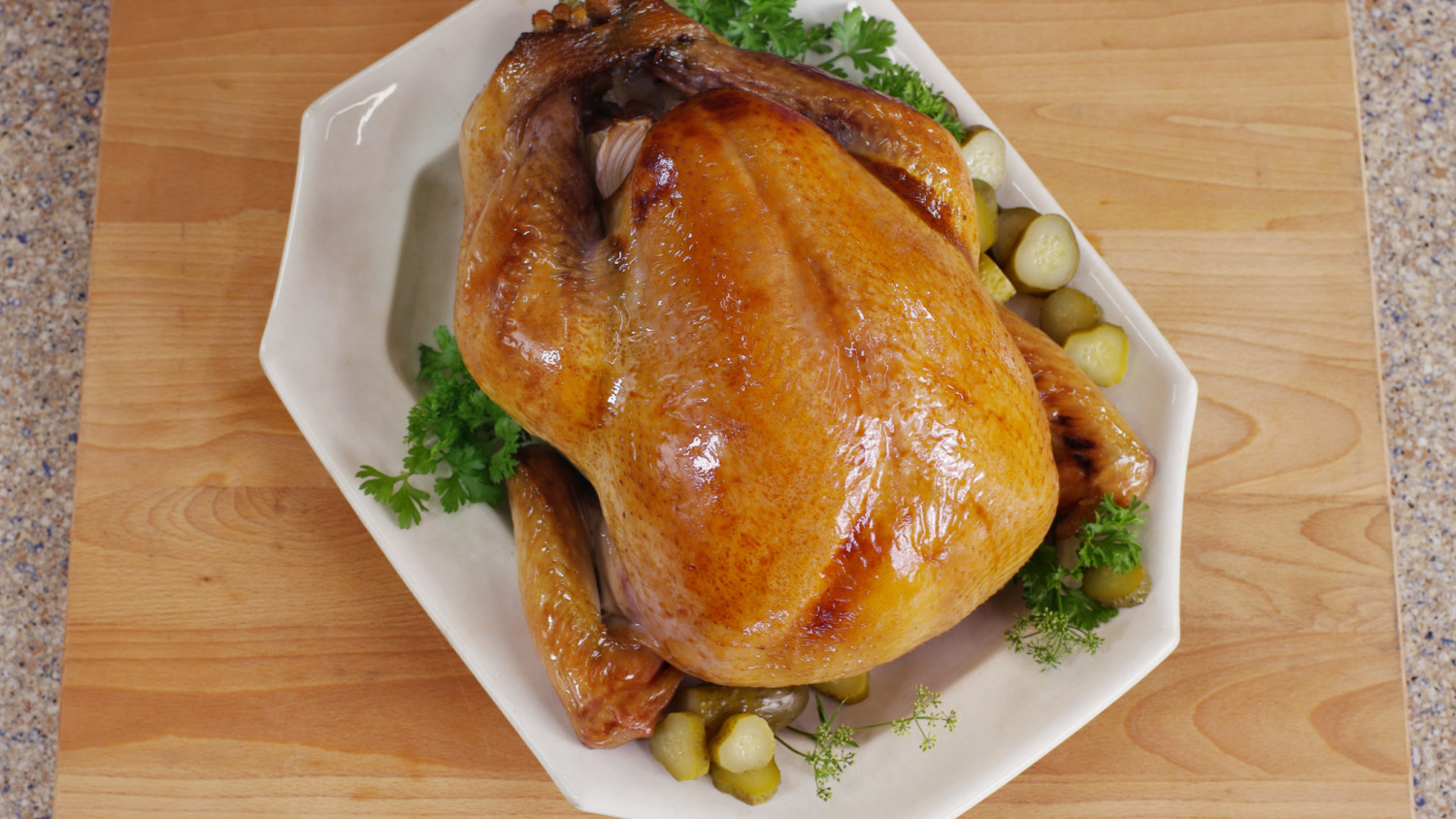Brining is a popular technique used to help keep turkeys moist and flavorful. But if you’re cooking a pre-brined Butterball turkey is brining it again necessary?
Butterball turkeys are injected with a saline solution to boost juiciness. So brining them again may not provide additional benefits.
Below we’ll explore whether or not to brine a Butterball turkey, the pros and cons, and tips for preparing these pre-brined birds.
What is a Pre-Brined Turkey?
Butterball pioneered the technique of “self-basting” turkeys in the 1950s. Self-basting refers to injecting a saltwater brine into the breast and thighs.
This brining solution contains
- Water
- Salt
- Natural flavorings like spices, broth or citrus
It helps Butterball birds stay moist and well-seasoned without the need for additional brining. Other turkey brands like Jennie-O and Norbest also sell pre-brined turkeys.
Do You Need to Brine a Self-Basted Turkey?
Since Butterball turkeys already contain a saltwater brine, you technically don’t need to brine them again prior to cooking
The built-in brine solution gives you a moist, seasoned turkey without the hassle of a lengthy brining process.
So if you’re short on time, there’s no need to brine a pre-brined Butterball turkey. You can pop it straight into the oven.
However, some cooks still prefer to brine their Butterball turkey for extra moisture and flavor. The choice is yours.
Pros of Brining a Pre-Brined Turkey
While not mandatory, here are some potential benefits of brining a self-basted turkey:
-
Adds more moisture for a super juicy turkey.
-
Infuses extra flavor like citrus, herbs or spices.
-
Allows you to customize the brine taste.
-
May improve texture.
-
Provides peace of mind for a foolproof turkey.
-
Creates a more seasoned bird if you brine for long periods.
So if you have the time, brining a pre-brined turkey can take it to the next level.
Cons of Brining a Self-Basted Turkey
On the flip side, here are the possible downsides of double brining:
-
It’s time consuming. Brining requires 12-24 hours.
-
Submerges the turkey in more saltwater.
-
Could make it overly salty if brined too long.
-
Unnecessary if you’re pleased with a Butterball turkey’s built-in moisture and flavor.
-
Requires a large container and fridge space to submerge.
-
An extra step that may provide only marginal benefits.
For many home cooks, the built-in brine is sufficient to deliver a delicious turkey without any extra steps.
Tips for Brining a Self-Basted Turkey
If you opt to brine a Butterball turkey, keep these tips in mind:
-
Shorten the brining time to 6-12 hours maximum to prevent over-salting.
-
Use a low-salt brine recipe with additional flavors like garlic, citrus, bay leaves.
-
Avoid high-sodium brines that may make it too salty.
-
Rinse turkey well after brining and pat dry.
-
Taste the brine before submerging – it should taste lightly seasoned.
-
Brine in the refrigerator to inhibit bacteria growth.
-
Place turkey breast-side down in the brine container.
-
Monitor to ensure brine solution fully covers the turkey.
How to Cook a Pre-Brined Butterball Turkey
Here are some tips for roasting a built-in brined Butterball turkey:
-
No need to thaw – place frozen turkey directly in oven.
-
Roast at 325°F until the breast reaches 165°F.
-
Use a low-sided pan to allow fat to render.
-
Start breast side down, then flip halfway through cooking.
-
Tent with foil if browning too quickly.
-
Baste periodically with pan drippings for extra moisture and flavor.
-
Let rest 20 minutes before carving for juicy slices.
Should You Baste a Self-Basted Turkey?
Basting adds extra moisture during roasting. While Butterball turkeys tend to stay juicy on their own thanks to the internal brine, basting provides benefits:
-
Further moistens breast meat.
-
Promotes browning of the skin.
-
Imparts new flavors from herb butters or pan juices.
So it can help supplement the built-in brine. Baste every 30 minutes for best results.
Pre-brined Butterball turkeys contain a saltwater solution that keeps them flavorful and moist. For most cooks, the internal brining is sufficient.
However, you may choose to brine a Butterball turkey for a short time (6-12 hours) to add extra flavor, moisture and peace of mind. Just be careful not to over-salt it.
Happy Thanksgiving from your friends at Butterball!

How To Brine a Turkey with Chef Tony
FAQ
Should a Butterball turkey be brined?
What happens if you don’t brine a turkey?
Do you wash a Butterball turkey before cooking?
Do Butterball turkeys need to be brined?
Butterball turkeys are pre-brined, so they do not need to be brined again. However, you can brine them if you prefer. Brining will add flavor and moisture to the turkey, and it can also help to make the meat more tender.
Why are Butterball turkeys injected with salt & water?
Butterball turkeys are injected with a solution of salt and water during processing, which helps to keep them moist and flavorful. What is Brining? Brining is a process of soaking meat in a salt-water solution before cooking. The salt in the brine draws out moisture from the meat, which is then reabsorbed along with the salt and other flavorings.
Should you brine a Turkey?
Brining can take a long time, especially if you’re brining a large turkey. Brine can make the turkey more salty. Brine can make the turkey more difficult to carve. Brining is not necessary for a flavorful and moist turkey. Brining can actually make the turkey more difficult to cook evenly. Brining can add unnecessary sodium to the turkey.
How do you brine a 20 pound turkey?
This recipe makes enough brine for one 18- to 20-pound turkey. One day before roasting your turkey, bring 1 quart water, the salt, bay leaves, and spices to a simmer, stirring until salt has dissolved. Let cool for 5 minutes. Line the container with a large brining or oven-roasting bag to minimize cleanup.
